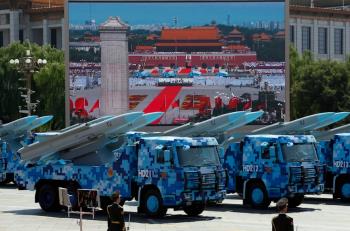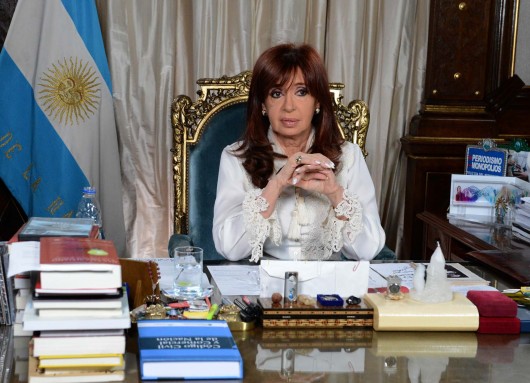Alwaght - Argentina’s president announced a major shakeup of her country’s intelligence network on Monday in her most combative step yet to address the fallout from the death of prosecutor Alberto Nisman, the Guardian reported .
In her first televised address since the prosecutor’s body was found at his apartment on 18 January, Cristina Fernández de Kirchner said she would support a bill to dissolve the existing structure – which employs more than 2,000 people – and replace it with a new federal intelligence agency .
It follows a protracted struggle with the intelligence agency that has come to light after the suspicious death of Nisman, which the president blames on rogue spies who are trying to undermine her .
The prosecutor’s body was found the night before he was due to appear in congress and accuse Fernández and other senior officials of trying to cover up the country’s the 1994 bombing of a Jewish community centre in Buenos Aires.
Fernández rejected the claim saying it is “unreasonable” to think that her government would have shielded Iranian officials.
In remarks transmitted on national television, President said there was nothing for Argentina to gain from a secret deal with Iran, which prosecutor Alberto Nisman had alleged days before he was found dead in his apartment bathroom.
At the time of his death, Nisman was under the protection of a 10-man security detail. He left no note. Friends and associates say he showed no signs of depression and was looking forward to his appearance in congress .
Although investigators have yet to rule out suicide, Fernández said in an online message that Nisman was killed to embarrass her government and amplify the accusations against her .
Government officials have pointed the finger of blame at spies whom they say were working with Nisman and feeding him wiretap information .
Chief among them is Antonio Stiuso, who until last month was the general director of operations and eavesdropped on the president’s political opponents. He was fired when Fernández discovered he was working with Nisman to build a case against her. He is believed to be in the US .
In her televised address – which she made in a wheelchair after a recent accident – Fernández also criticised Diego Lagomarsino, who was charged on Monday with illegally lending a firearm to Nisman .
Lagomarsino faces up to six years in jail for lending his Bersa handgun to Nisman on the day before the latter was found dead with a .22 caliber bullet wound from the pistol .
Prosecutor Viviana Fein announced the charge on Monday but has yet to declare whether she believes the gun was used in a suicide or a murder .
Lagomarsino is believed to be the last person who saw Nisman alive. He has reportedly testified that Nisman requested the loan of a gun because he was worried about his personal safety .
Underlining the bizarre as well as dangerous politicisation of the case, Kirchner accused Lagomarsino of being a fierce opponent of her presidency, tweeting insults about her, and having relatives who work in a law firm that holds shares in Clarin – the media group with which the president has fought a running battle for years .
Domestic media have speculated that Lagomarsino also worked for the intelligence agencies, although Fernández did not make this connection .
To reform the system, the president said she would call both parliamentary chambers to special sessions on February 1 to discuss the creation of a Federal Intelligence Agency. In the new structure, the director and deputy director of the agency would be proposed and approved by the Senate rather than the executive as is currently the case, she said. The bill would also switch responsibility for wiretaps and other communications from the intelligence agency to the attorney-general’s Office .
“We must start to work on a project to reform the Argentine intelligence system, in order to clear up a system that has not served national interests,” Fernández said, describing the old set-up as a “national debt” that had lingered on since the return of democracy in 1983 .
Critics noted, however, that the president – who leaves office this year – has shown no enthusiasm for changing the system until now and that her tussle with the spy agency has so far led to increased surveillance powers for the army .



























